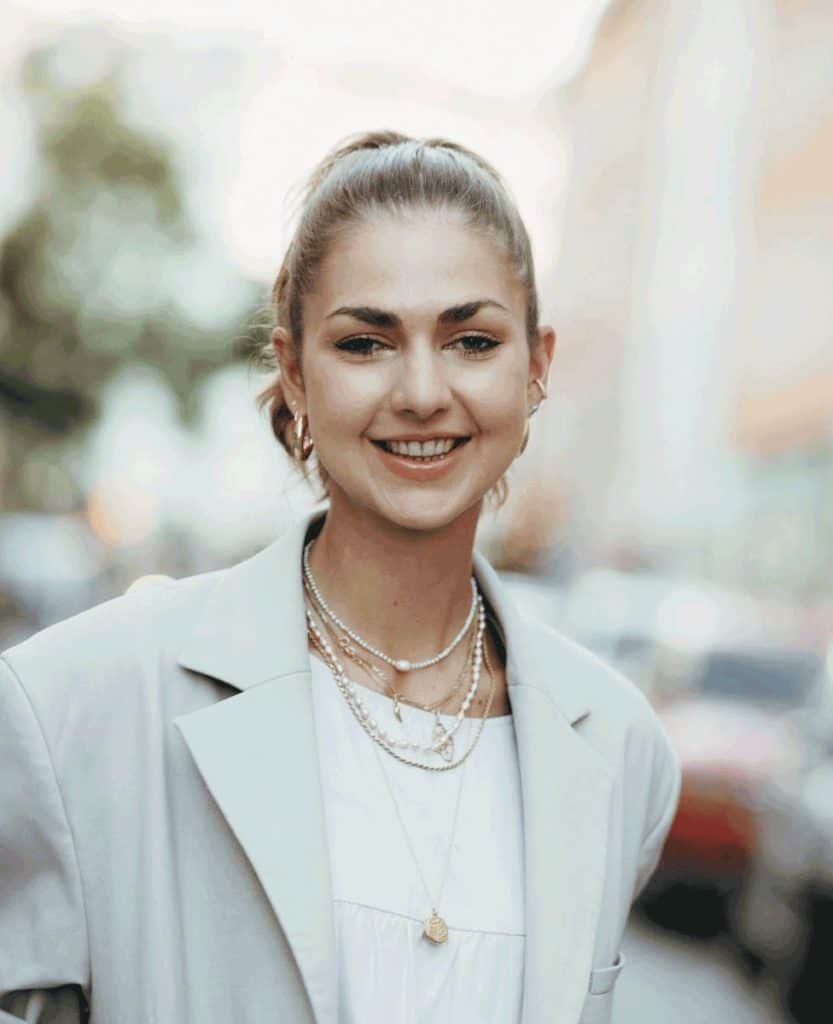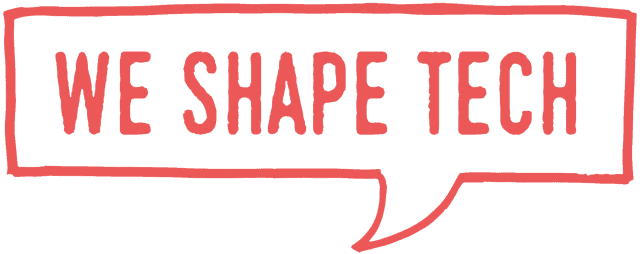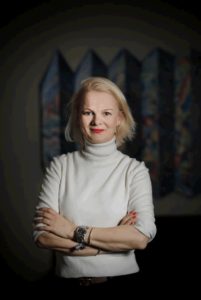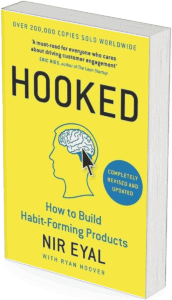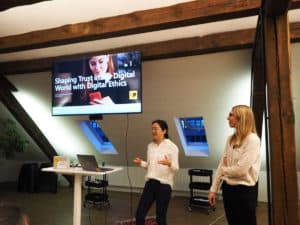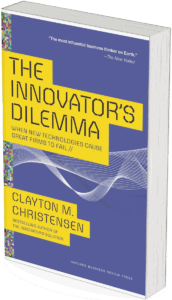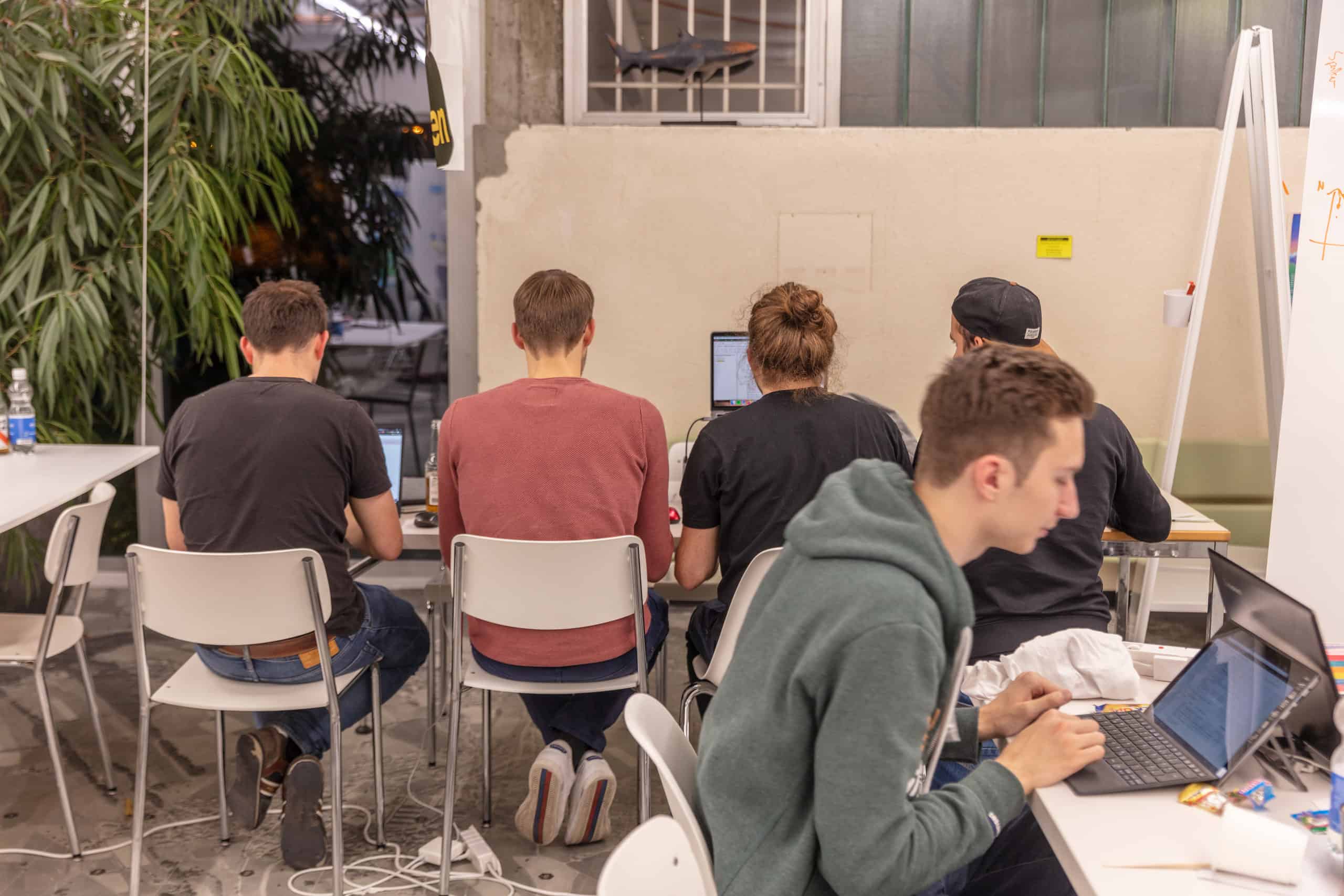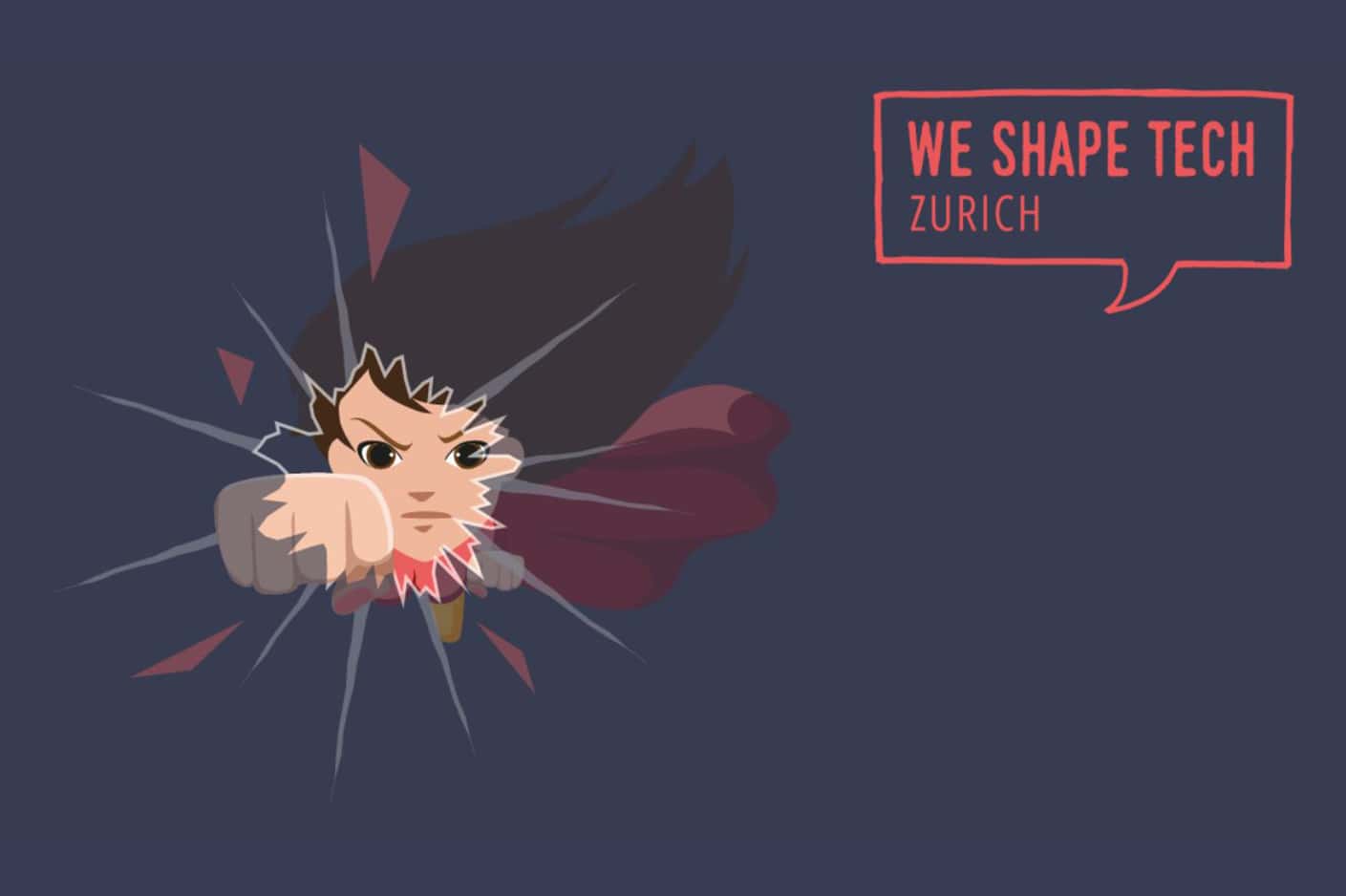Every month we ask one individual in our network a few questions about their way into tech, their motivation and their lessons learned.
Let’s start from the beginning. Tell us about where you’re from!
I grew up in a town near Zurich, Switzerland and lived around this area until I finished high school. When I was 19 years old, I moved to Munich to study fashion journalism and fashion management. Initially, I only wanted to stay in Munich for my studies but ended up living there for six years. This year, I moved to Berlin while still appreciating going back to Switzerland every (other) month.
What valuable advice did you get from your parents?
To do what fulfills you – and to always stay curious. Especially since I started my own business, my dad supported me a lot by giving me not only very precious advice, but he is always the person I know I can ask anything at any time. One key piece of advice that has always stuck with me is that the key responsibility of a good leader is to be able to listen to your team and to remain calm in hectic, tense situations. Every challenge is a chance to grow and to find new solutions.
How did you become interested in tech?
It was rather a natural evolution than a conscious decision. I am passionate about solving solutions and to be creative – and I became more aware how tech can help me to reach my goals faster. I first learnt more about the basics of coding when I started my blog when I was about 15 years old. To me, it was never about being very passionate about tech but more about implementing things on my own.
At the time when we founded CLOTHESfriends and decided to build an app, we were lucky enough to find two engineers who joined the team as CTO and CPO along the way. Even though they have always been the experts, I wanted to understand the basics better and therefore completed a coding course which I really enjoyed.
With your fashion background working on a tech product for the fashion industry, how did you get comfortable in tech? Any tips for our community?
To me, it was always about finding the best solutions for an industry which is built on a very complex combination of issues that pollute our planet. Since I am less on the manufacturing and hardware side in general, I became interested in how tech solves problems in other industries and how they could be adapted to the fashion industry. It’s really about just giving it a try, to stay curious and to admit that you cannot be an expert right from the start.
Besides the coding course from SheCodes I mentioned, the book “Ask your Developer: How to Harness the Power of Software Developers and Win in the 21st Century” by Jeff Lawson has helped me a lot to get more comfortable with tech.
Fashion and tech, how can the industries learn from each other and do they have more in common than we think?
After more than two years working in fashion- tech which I see as an own sub-industry, I saw how the intersection of fashion and tech offers remarkable potential for innovative solutions. In terms of collaboration, for example, technology can help the fashion industry become more efficient and sustainable. I have seen great examples of fashion-tech start-ups where this collaboration leads to more advanced AI-driven design tools, to rethink circularity along the supply chain and to innovative uses of materials and to manufacturing processes that help reduce the enormous environmental footprint of the fashion industry.
Furthermore, collaboration could also help in a more global perspective. Both fashion and tech are global industries, but they often operate in their own bubbles. The fashion industry, with its focus on creativity and personal expression, could help tech become more human-centric and inclusive. With CLOTHESfriends, we also aim to bring those two bubbles more together in growing a network of innovators, fashion experts, thought leaders and consumers.
I truly believe that thriving conversations between those different stakeholders could help a better understanding of global trends as well as to educate consumers, ultimately leading to more effective and tech solutions.
You recently got accepted to be part of the Sigma Squared society, congratulations – what does it mean to you?
Thank you! In fact, I never expected how much value Sigma Squared would give me – and that there would even be a new opportunity for me and CLOTHESfriends. First of all, Sigma means connecting with people who support, inspire and motivate you to follow your entrepreneurial and personal path. I really appreciate the honesty and helpfulness of all the Fellows – and that it is also possible to openly talk about situations when you are not doing well or when you experienced a failure.
I recently had this experience when things with CLOTHESfriends got really tough due to the instability of the fashion industry, the lack of acceptance for fashion rental and we had to face the fact that we cannot reach product-market-fit with a fashion rental app at this point. The exchange with the Sigma Fellows helped me to see this fact as potential instead of a failure. This is how I got to know Marvin Sanginés and Eva Egg from notus. After several talks we found more synergies and decided to put our forces together.
Together, we rethink CLOTHESfriends, turning it into a community – and media-first business that empowers circular fashion on all levels. Simultaneously, I joined notus as Head of Partnerships, continuing to build the CLOTHESfriends Circular Community Space as part of notus.
Have you ever had a role model that inspired you on your path?
On a very close level, my dad. He has always managed to keep the balance between hard work, leading a company and being an amazing dad. Looking at famous entrepreneurs, Lea-Sophie Cramer has inspired me a lot, how she disrupted an industry, how she gives back her power and experiences by being an angel investor and advisor and how she points out that she does not want to stop learning by facing new challenges. Also, Stella McCartney has been one of my role models because she has invested so much time, efforts and dedication into changing the fashion industry, driving more awareness and innovation – way before sustainability was even a topic in fashion.
What aspects of your work are you proudest of?
We launched an app and movement with CLOTHESfriends that drives awareness for sustainable fashion and offers new solutions for how consumers can be part of the change. Even though we are shifting our business model now, I am proud that we reach more than 12k people, that we were recognized as key players for circular fashion in Germany. After all, what makes me most proud is when someone comes to me and says “you have inspired me to buy less clothes, to reuse or to pay attention to sustainable fashion consumption.”
What drives you at work?
People, innovation and curiosity. I love to create solutions with people and I truly believe that we can achieve everything if we work together, if we challenge ourselves and learn from each other.
What has been your toughest challenge you faced while working in tech?
Working in tech and being in contact with founders of tech start-ups I have witnessed that the acceptance for women working in fashion is not that advanced yet.

Do you have a favorite book or podcast?
For books, I love “The Hard Thing About Hard Things” from Ben Horowitz or “The Big Five for Life” from John Strelecky.
I am also a podcast nerd. For entrepreneurial topics, my top 3 would be “Diary of a CEO” by Steven Bartlett…
…“Unicorn Bakery” by Fabian Tausch and …
… “Women Authors of Achievement” by Daria Suvorova.
What advice would you give other women in tech?
To stay curious, to speak up for yourself and to work together.
And what advice would you give women not yet working in tech that want to enter the field?
Do it and enjoy the journey! Even though you might only want to understand more about tech, the whole industry offers so much potential in enhancing creativity, and solving problems in novel ways. I would encourage women who are not yet in tech to stay curious and open to learning, as these skills are not just useful in other fields but also empowering. It’s okay to start small and grow your expertise over time. Stay agile in your journey, as the tech landscape is ever-evolving, and again, don’t shy away from collaboration.

